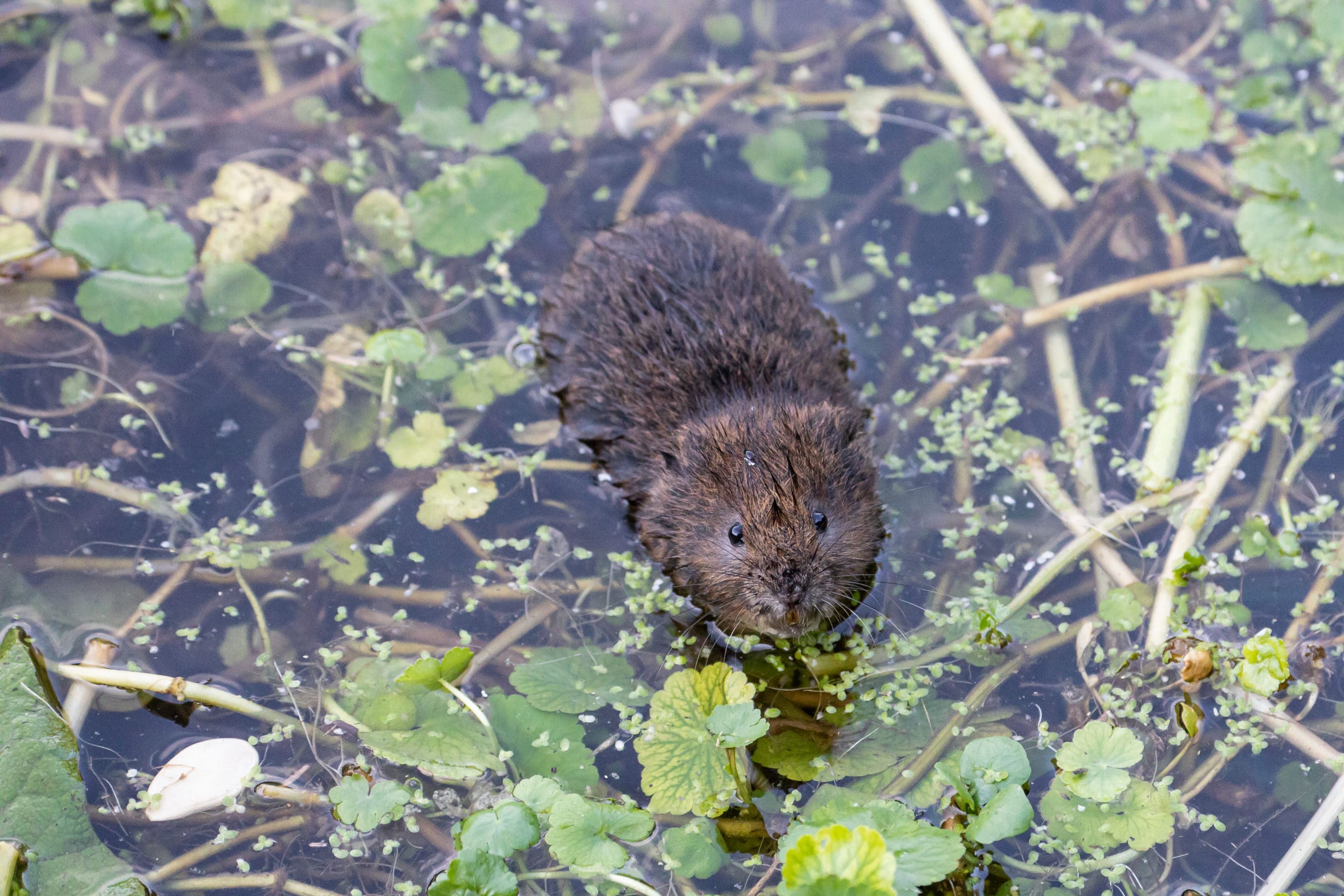Contact us today for a free quote.
Water Vole Mitigation and Compensation
Water vole mitigation plans will be required if they are discovered on a development site during an assessment, appraisal, or a survey. If they are found after development work has begun, all work that could have an effect on water voles should be stopped immediately as mitigation may be required. A Natural England License will be required for any works that impact water voles.
When is Water Vole Mitigation Required?
Water vole mitigation may be necessary for planning permission and licence applications if water voles are found present on, or in the vicinity of a development site. It is against the law to intentionally injure, kill, or capture this type of species or to disturb their habitat as they are a UK and European protected species.
If there is potential for water voles to be present on a development site, a water vole survey should be carried out to identify how the development could affect the water voles. Mitigation and compensation methods should then be incorporated to address the impacts.

Avoidance Methods
Avoidance of negative impacts on a species due to development should always be attempted. Negative effects to water voles can be avoided by:
- Attempting to avoid undertaking works in areas where water voles are present.
- Attempting to limit damage to their habitats.
- Ensuring connectivity of habitats to avoid habitat fragmentation and isolation.
Water Vole Mitigation Methods
Water vole mitigation methods should be put in place if avoidance methods are not possible. Mitigation methods should attempt to limit the impacts of development through use of habitat manipulation. Habitat manipulation will encourage the species to move to a new, connected habitat.
Translocation, which means capturing and moving the water voles can be undertaken in certain circumstances. This should only be done when there is no reasonable way to keep them in the same location, or nearby habitat.
When undertaking translocation, the new habitat should be appropriate and capable of supporting the species population. You must prove that use of this method as part of the development work would assist in the conservation of the species.
Water Vole Compensation Methods
Remaining negative effects which cannot be solved using mitigation measures can be offset using compensation methods. Compensation methods can include the following:
- The improvement of water quality
- Enhancement and improvement of the bank and vegetation structure
- The provision of added or improved habits for the water voles to compensate for any habitats lost as a result of the development.
Mink control should also be undertaken as part of mitigation or compensation of this species.
More information on water vole mitigation and compensation methods have been set out by Natural England and can be found on the Government’s website. The Water Vole Mitigation Handbook, which is part of the Mammal Society Mitigation Guidance Series, also provide some useful guidance.
How Can Collington Winter Assist?
Collington Winter Collington Winter Environmental are a team of Ecologists with extensive experience in undertaking mitigation strategies on all types of development projects. Our Ecology Director, Olivia Collington, has worked with protected species across the UK, undertaking field surveys and writing scientific reports for submission at planning.
We adopt a pragmatic approach to all sites, working with clients to find solutions and develop relationships. With current offices located in Greater Manchester and Dumfries, the team are well served to work nationwide. Over the years, we have built strong relationships with key stakeholders across the UK.
We provide a number of mitigation services, including great crested newt mitigation, bat mitigation, badger mitigation, and bird mitigation. Please get in touch with our Ecology Director Olivia Collington (Olivia.collington@collingtonwinter.co.uk) for more information on bat surveys and mitigation.
As well as mitigation services, we offer Ecological Appraisal and Assessment and Protected Species Surveys.
We also provide Landscape Architectural Services.
Contact Us
Registered Address
23 Bark Street East, 1st Floor, Bolton, BL1 2BQ
Cambridge Office
Future Business Centre, Cambridge Campus, Kings Hedges Road, Cambridge, CB4 2HY
Leicester Office
Rutland House, 23-25 Friar Lane, Leicester, LE1 5QQ
Bristol Office
Newminster House, 27-29 Baldwin Street, Bristol, BS1 1LT
Telephone
Head Office: 01204 939 608
Dumfries Office: 01387 378208
